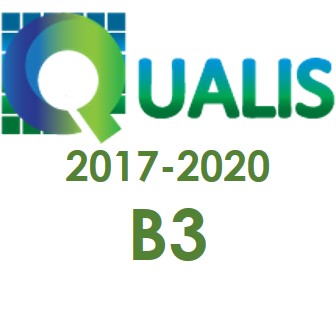REFLECTING ON ENGLISH TEACHING AT AN EARLY AGE IN THE CHILEAN CONTEXT
DOI:
https://doi.org/10.22481/folio.v13i2.9647Keywords:
Teaching very young learners, English as a foreign language, Chilean contextAbstract
Little is known about teaching English to young learners in Chile. Despite the importance given by the Chilean government to the English subject, its instruction is not compulsory until 5th grade. Although the Ministry of Education designed optional Planes y Programas to teach English from pre-schoolers to fourth graders, this material might not necessarily meet the students and teachers’ communicative needs. This article aims to understand and compare the Chilean NT2 considering education professionals, their training, and authorities'’ guidelines and the context to what the literature has explored on the area of early childhood education, from young learners’ features to classroom environment. Final considerations and reflections are included in relation to what can be improved
Downloads
References
AMERICAN PSYCHOLOGICAL ASSOCIATION. (2017). Cognitive and social skills to expect from 3 to 5 years. Available in <https://www.apa.org/act/resources/fact-sheets/development-5-years#:~:text=How%20they%20play%3A%20At%20age,other%20children%2C%20often%20cooperate%20well%2C>
AYUDA MINEDUC. Portal de Atención Cuidadana de Educación del Gobierno de Chile. Available in <https://ayudamineduc.cl/ficha/we-learn> Accessed in December 9, 2020
BRITISH COUNCIL. English in Chile: An examination of policy, perceptions and influencing fcators. 2015. Available in <http://obiret-iesalc.udg.mx/sites/default/files/publicaciones/44._english_in_chile.pdf>
ÇAĞAÇ, Fatima. Benefits of learning a foreign language at an early age. Journal of
International Social Research, v. 11, n. 59, p. 132-137, 2018. DOI http://doi.10.17719/jisr.2018.2622
CAMERON, Lynne. Teaching languages to young learners. Cambridge: Cambridge
University Press, 2001.
CENTER ON THE DEVELOPING CHILD. (2007). The science of early childhood development (InBrief). 2007. Available in <https://developingchild.harvard.edu/resources/inbrief-science-of-ecd/#:~:text=The%20science%20of%20early%20brain,a%20prosperous%20and%20sustainable%20society>
CONNECTICUT OFFICE OF EARLY CHILDHOOD. (2014, April). Connecticut Early Learning and Development Standards. Lo que los niños deben saber y ser capaces de hacer desde el nacimiento hasta los cinco años. 2014. Available in <https://www.ct.gov/oec/lib/oec/earlycare/elds/ctelds_spanish_web.pdf>
CRYSTAL, David. English as a global language. Cambridge: Cambridge University
Press, 2003. DOI http://doi.10.1017/CBO9780511486999
CURTAIN, Helena. Foreign language learning: An early start. (ED328083). Washington DC. ERIC Clearinghouse on Languages and Linguistics. 1990. Available in <https://files.eric.ed.gov/fulltext/ED328083.pdf>
EDUCATION FIRST. EF EPI 2019 – EF English Proficiency Index – Chile. 2019. Available in <https://www.ef.com/cl/epi/regions/latin-america/chile/> Accessed in August 18, 2020
ELLIS, Gail. ‘Young learners’: clarifying our terms. ELT Journal, v. 68, n. 1, p. 75-78, 2014. DOI http://doi.10.1093/elt/cct062.
GARCÍA-CHATO, Guadalupe. Ambiente de aprendizaje: su significado en educación preescolar. Revista de Educacion y Desarrollo, n. 29, p. 63-72, 2014.
GHASEMI, Babak; HASHEMI, Masoud. Foreign language learning during childhood. Procedia - Social and Behavioral Sciences, v. 28, p. 872-876, 2011. DOI: http://doi.10.1016/j.sbspro.2011.11.160
GOBIERNO DE CHILE; MINISTERIO DE EDUCACIÓN; MINISTERIO DE ECONOMÍA, FOMENTO Y TURISMO. (2014). Estrategia Nacional de Inglés 2014 - 2030. Available in <https://www.economia.gob.cl/wp-content/uploads/2014/03/140307-Documento-Estrategia-Nacional-de-Ingl%C3%A9s-2014-2030.pdf>
LIGHTBOWN, Patsy; SPADA, Nina. How languages are learned. Oxford: Oxford University Press. 4 ed. 2013.
MINISTERIO DE EDUCACIÓN. Idioma extranjero inglés propuesta curricular kinder. 2012. Available in <https://curriculumnacional.mineduc.cl/614/articles175765_programa.pdf> Accessed in June 11, 2020
MINISTERIO DE EDUCACIÓN; SUBSECRETARÍA DE LA EDUCACIÓN PARVULARIA. Bases curriculares educación parvularia. 2018. Available in <https://parvularia.mineduc.cl/wpcontent/uploads/sites/34/2018/03/Bases_Curriculares_Ed_Parvularia_2018.pdf> Retrieved in June 15, 2020
MOON, Jayne. Children learning English. Oxford: Macmillan-Heinemann. 2000.
MOON, Jayne. Teaching English to young learners: the challenges and the benefits. In English! Winter 2005. British Council. p. 30-35. 2005.
PROGRAMA INGLÉS ABRE PUERTAS. Antecedentes sobre el Programa Inglés Abre Puertas (PIAP). Available in < https://ingles.mineduc.cl/programa-ingles-abre-puertas>. Retrieved in December 9, 2020
SHIN, Joan; CRANDALL, Jo. Teaching young learners English: from theory to practice. Boston: National Geographic Learning. 2014.
THOMPSON, Paul; CANNON, Tyrone; NARR, Katherine. et al. Genetic influences on brain structure. Nature Neuroscience, v. 4, n. 12, p. 1253–1258, 2001.
TOLEDO SANDOVAL, Flor; GONZÁLEZ HERMOSILLA, Alejandra. El aprendizaje del idioma inglés y desigualdad: formación inicial docente y propuestas curriculares para primero básico. Revista Némesis, n.13, p. 6-22, 2016.
UNITED NATIONS EDUCATIONAL, SCIENTIFIC AND CULTURAL ORGANIZATION. Early childhood care and education. Available in <https://en.unesco.org/themes/early-childhood-care-and-education>. Accessed in december 10, 2020
WEATHERFORD, Jarold. Personal benefits from foreign language study. (ED276305).
Washington DC. ERIC Clearinghouse on Languages and Linguistics. 1986. Available in < https://files.eric.ed.gov/fulltext/ED276305.pdf>
YILORM BARRIENTOS, Yasna; ACOSTA MORALES, Haydeé. Neoliberalismo y proceso de enseñanza-aprendizaje de la lengua inglesa en Chile: una mirada dialéctica al estado del arte en sectores vulnerables. Revista Cubana Educación Superior, La Habana v.35, n.3, p. 125
Downloads
Published
How to Cite
Issue
Section
License
Copyright (c) 2022 fólio - Revista de Letras

This work is licensed under a Creative Commons Attribution-NonCommercial 4.0 International License.












